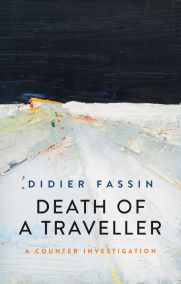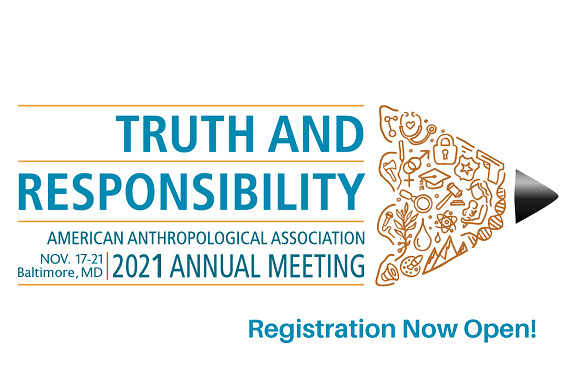Upcoming Activities
No upcoming activities at the moment. Please check again soon.
Past Activities
Dilemmata der (Nicht-)Positionierung. Kulturwissenschaftliche Forschung, Kritik und Verantwortung in autoritären Geflechten
Konferenzbeitrag von Dr. Nurhak Polat und Hagen Steinhauer
Im Zuge von zeitgenössischen Diskussionen und Diagnosen zum Sterben und Verfall von Demokratien werden wir häufig mit dichotomen Vorstellungen von ‚Autoritarismus‘ und ‚Demokratie‘ als eindeutig abgrenzbaren, sich gegenseitig ausschließenden Regierungsformen konfrontiert. Empirische Forschung fördert hingegen ‚sanfte‘ Übergänge, Verflechtungen und ambivalente Gleichzeitigkeiten demokratischer und autoritärer Praxen und Diskurse zutage. Diese äußern sich in der graduellen Aushöhlung demokratischer Institutionen und Prozesse ebenso wie in oft vehementen Kämpfen um die (Be-)Deutungen politischer Grundbegriffe, Wahrheitsgehalte und den Status wissenschaftlichen Wissens. Empirische Forschungspraxis ist auf vielfältige Weise – teils intendiert, teils ungewollt – mit diesen Kämpfen und Verschiebungen verstrickt und somit mit der Problematik des ‚Position-Beziehens’ und ‚Haltung-Zeigens’ verwoben.
Den Ausgangspunkt unseres Beitrages bildet die Beobachtung, dass sich diese Problematik in Forschungen entlang des Demokratie/Autoritarismus-Nexus in besonderer Dringlichkeit stellt. Auf eine ganz grundsätzliche Weise hat jedwede (Nicht-)Positionierung wissens- und zukunftspolitische Auswirkungen wie ‚Risiken’ zur Folge, beispielsweise eine Öffnung oder Schließung bestimmter Zugänge und Perspektiven, eine akademische wie individuelle ‚Gefährdung’ oder eine graduelle Verengung der individuellen wie kollektiven Positionierungsfreiräume. Anhand unserer empirischen, teils fern-anthropologischen Forschungen in ‚autoritären Geflechten‘ in der Türkei, in Frankreich und in Polen möchten wir einige Dilemmata des Position-Beziehens herausarbeiten. Uns interessieren hierbei insbesondere drei Fragestellungen:
Erstens fragen wir nach Veränderungen im Verhältnis zwischen Teilnahme und Reflexion als den beiden Grundbestandteilen jeder ethnografischen Praxis und Wissensproduktion: Ist Distanzierung überhaupt eine Option im Anbetracht kontinuierlicher Angriffe auf demokratische Institutionen oder Wissenschaftsfreiheit? Und wie gestalten sich Räume der Reflexion und Teilnahme?
Zweitens erkunden wir Möglichkeiten einer ‚kritischen Haltung‘ in Kontexten, in denen Begriffe und Wissensbestände kritischer Forschung regelmäßig durch autoritäre Akteur*innen angeeignet und umgedeutet werden.
Und drittens diskutieren wir ‚Haltung zeigen’ als eine Suche nach Perspektiven und Möglichkeiten für eine „antizipatorische Ethnografie“ (Knecht 2009). Wir fragen danach, inwiefern eine empirische Kulturwissenschaft in und gegenüber autoritären Geflechten und Zeiten vorstellbar und machbar ist, die weder ‚alarmistisch’ auf die aktuellen alltags- und forschungspolitischen Probleme hindeutet, noch diese durch ‚beschreibende’ Analysen ‚nachvollzieht’, sondern antizipiert, zukunftsorientiert mitwirkt und interveniert.
The Rise of Authoritarian Identity Politics in France (Stockholm University)
Talk by Hagen Steinhauer at the conference The Power(s) of Language. Negotiating Voice and Recognition (BTWSD#4)
In the wake of the 2020 terrorist attacks, the term islamo-gauchisme gained salience in French mass media discourse. Members of the government, specifically the ministers of national education and research, used it not only to condemn fundamentalist and Djihadist ideologies, but also to accuse certain academic disciplines of intellectual complicity with Islamism. Islamo-gauchisme thus equates alleged leftist support for Islamist fundamentalism with critical research projects like postcolonial studies or intersectional feminism.
Islamo-gauchisme combines the denial of structural racism and Islamophobia with a delegitimization of critique and the notion of an endangered white majority threatened from outside as well as from within. Thus, it should be understood as part of the far-right’s larger strategy to push back against left-wing emancipatory politics and to implement their agenda in the centre of political discourse.
I argue that we are witnessing a broader authoritarian shift which consolidates ethno-nationally encoded identity politics of the menaced majority: far-right narratives of Islamization and the grand remplacement have become an integral part of public discourse. The mainstreaming of these ideologies has already had effects on legislation: A new law on separatism led to the dissolution of activist groups and NGOs speaking up against Islamophobia. Islam in general was further stigmatized and critique of institutional Islamophobia dismissed as racisme imaginaire. In my presentation I will examine the history of the term islamo-gauchisme to identify its underlying argumentation and its influence on current debates around séparatisme and wokisme. The discursive function of all of these buzzwords, I argue, is to deny the existence of structural discrimination in order to uphold racialized and gendered hierarchies. France is witnessing the rise of an authoritarian identity politics aimed at delegitimizing claims for equal recognition and rights of minorities.
Ethnography of Policing: Provocation, Affect and the Authoritarian State
A Conversation with Deniz Yonucu, Newcastle University
This event is based on Deniz Yonucu’s recently published book Police, Provocation, Politics: Counterinsurgency in Istanbul. (Cornell University Press, 2022). In it she presents a counterintuitive analysis of contemporary policing practices, focusing particular attention on the incitement of counterviolence, perpetual conflict, and ethnosectarian discord by the state security apparatus. Shedding light on counterinsurgency’s affect-and-emotion-generating divisive techniques and urban dimensions, the book shows how counterinsurgent policing strategies work to intervene in the organization of political dissent in a way that both counters existing alignments among dissident populations and prevents emergent ones. Drawing on her insights into these forms of urban policing in Istanbul, we would like to discuss how they are situated in the global historical context and in which ways they provide a background to the authoritarian state politics we are witnessing in Turkey today.
Deniz Yonucu is Lecturer in Sociology at the School of Geography, Politics and Sociology, Newcastle University. She received her PhD in Social Anthropology from Cornell University in 2014. She holds two MA degrees in Social Sciences from the University of Chicago and in Sociology from Bogazici University. Her teaching and research interests lie at the intersection of political and legal anthropology and urban studies, with a focus on the Middle East. She is a co-founder and co-convenor of the Anthropology of Surveillance Network (ANSUR).
The event is co-organised by the Department of Anthropology and Cultural Research and the Research Group Soft Authoritarianisms.
To register please send an email to: xiaoling@uni-bremen.de
Civil Society and Democratic Backsliding Conference (Istanbul)
The conference is jointly organized by Society and Legal Research Foundation (TOHAV) and Aberdeen University’s Centre for Citizenship, Civil Society and Rule of Law (CISRUL)
An extraordinary range of countries across the world transitioned to democracy in the 1980s and subsequent decades, introducing multi-party elections, constitutional protection for minorities, freedom of speech and conscience, and other measures consistent with international human rights treaties and covenants. One set of pro-democracy actors came to be known as “civil society”: a loose term but which often refers to legally-established organizations and associations, from NGOs and social movements to think tanks and the media, which maintain a degree of autonomy from governments and political parties, and which attempt to place pressure on governments through monitoring, advocacy and policy recommendations.
In the past decade, however, authoritarian practices and policies have been on the rise in many contexts. Countries as different as Turkey, Hungary, Poland, Brazil, Mexico and Tanzania, all held to be consolidating as democracies, have been criticized for “democratic backsliding”. The term is not wholly satisfactory because some of the authoritarian practices are new – this is no simple return to old habits – and there is no single trend across countries. For example, though much attention has been paid to shifts toward the political Right, Mexico is a case of authoritarian practices on the Left. Neither are the processes exclusive to newer democracies: India is an older democracy that is now accused of authoritarianism, and Trump’s USA was arguably another example. Yet “democratic backsliding” does seem to capture some of the experience of these countries: their governments have abandoned some of the democratic agendas and principles to which they appeared previously committed.
One common feature is precisely that governments tend to denounce “civil society” for being elitist and blocking the will of the people, including by kow-towing to international donors and powers like the EU and the US. Civil society organizations that once struggled against military dictatorship or one-party rule have found that their longstanding strategies are ill-suited to these times. For example, civil society was instrumental in drafting democratic constitutions and monitoring their implementation, yet in recent years governments have modified the constitutions and turned them to authoritarian ends. Governments have also looked to harness the judicial institutions that civil society used to work through and with. Meanwhile, civil society has found itself vulnerable to governments’ ability to rally new constituencies in order to command electoral majorities, often by stigmatizing minorities which find themselves permanently excluded. Governments use their newfound political power to neutralize and frustrate attempts to limit that power, whether by civil society organizations, social movements, opposition parties, the media, or autonomous institutions like electoral tribunals and human rights commissions.
Krieg – Europa – Grenze. Herausforderungen für eine anthropologische Europäisierungsforschung
Diskussionsrunde mit Jens Adam (Forschungsgruppe Soft Authoritarianisms, Universität Bremen) / Čarna Brković & Sabine Hess (Institut für Kulturanthropologie und Europäische Ethnologie, Universität Göttingen) / Bernd Kasparek (Institut für Europäische Ethnologie, Humboldt Universität zu Berlin)
Der Krieg in der Ukraine macht auch ‚Europa‘ erneut zu einem Gegenstand öffentlicher Diskussion und politischer Praxis: die Verschärfung innereuropäischer Antagonismen und Grenzziehungen, die rasante Integration einer militärischen Komponente in EU-Politiken, die sukzessive Kappung langfristiger transkontinentaler ökonomischer Verflechtungen im Bereich der fossilen Energie oder die Etablierung paralleler, höchst ungleicher Migrationsregime an der östlichen EU-Außengrenze sind einige der Felder, in denen widersprüchliche Refigurationen Europas aktuell deutlich zutage treten.
Im Rahmen dieses Roundtable möchten wir vier Schlaglichtern auf diese Entwicklungen werfen und insbesondere in ihren Konsequenzen für eine anthropologische Europäisierungsforschung diskutieren. Wie verändern sich unsere Begriffe von „Grenze“ und dem „Regieren“ einer supranationalen Formation? Was lernen wir über die Grundlagen und Mechanismen von Ein- und Ausschlüssen in das europäische Projekt? Und welche kritischen Perspektiven eröffnen sich auf diese Gegenwart, wenn wir sie auf Basis von ethnografischen Studien zur EU-Südgrenze kontextualisieren?
Registrierung per E‑Mail an xiaoling@uni-bremen.de
Violence, Resistance, Displacement – War in Ukraine. Roundtable and Discussion
Outraged by the brutality of the Russian government’s military invasion of Ukraine, this panel will assemble anthropologists to reflect about ways and approaches to react to this war with the means of our discipline. It will provide a space to share our observations and indignations, to engage with first careful attempts of sense-making and to debate about possible public action. The panelists will focus especially on the following aspects:
- What do we know about the current situation on the ground? How does the war affect the conditions of everyday and communal life, the social fabric and sociopolitical forms in Ukraine? How can we contribute to document these consequences of organized violence?
- To which extent can we draw on already elaborated perspectives of an anthropology of political violence to address and examine this ongoing war?
- How does the war and its geopolitical repercussions challenge our understandings of Europe and Europeanization as anthropological research fields?
- What steps could we take to create networks of support and solidarity for Ukrainian colleagues?
Participants:
Volodymyr Artiukh (University of Oxford), Elizabeth C. Dunn (Indiana University Bloomington), Taras Fedirko (University of St Andrews), Dafna Rachok (Indiana University Bloomington), Andrey Vozyanov (European Humanities University Vilnius), Catherine Wanner (Pennsylvania State University)
Convenors:
Jens Adam (University of Bremen), Čarna Brković (University of Göttingen), Sabine Hess (University of Göttingen), DGEKW-Kommission “Europäisierung_Globalisierung: Ethnografien des Politischen“, U Bremen Excellence Chair Research Group „Soft Authoritarianisms
GOVERNING THROUGH CONTRADICTIONS? SOFT AUTHORITARIANISM IN FRANCE, POLAND AND TURKEY
Panel at the conference: “New Authoritarianisms in the Contemporary World”
Albert Hirschmann Centre on Democracy, Graduate Institute Geneva
A spectre is haunting the world – the spectre of new authoritarianisms. From Brazil to Hungary, from Poland to the Philippines, from India to the United States, a new wave of authoritarian leaders, parties and movements has been undermining democracy from within and threatening its existence. Until quite recently, authoritarianism was a phenomenon identified with the South. Today, however, authoritarian ideologies, movements, and parties, and the threat they pose to democracy, are also very much a feature of politics in the West. The workshop aims to bring together interested graduate students and post-docs to explore this phenomenon from multiple disciplinary and methodological perspectives.
With perspectives from researchers around, this workshop aims to share perspectives on current authoritarian regimes, the events that lead to authoritarianism and the impact of the same on states. The workshop brings specific examples of research conducted in countries around the world exploring the conditions that foster a variety of authoritarian sentiments, the links between various ideologies and the current scenario, and finally the strategies and tactics of these regimes.
Sign up by email at democracy@graduateinstitute.ch
Ethnography as Counter-Investigation?

Book presentation and discussion with Didier Fassin:
Death of a Traveller. A Counter-Investigation. Polity 2021.
In his last book, Didier Fassin examines a blatant case of police violence and institutional racism. A young man, belonging to the Traveller community, fails to return to prison after a temporary release. The search operation of a special unit of the French gendarmerie ends with the fugitive shot dead on his parents’ farm. Afterwards contradictory accounts of the fatal event are given. The gendarmerie speaks of inevitable self-defense; the family reports of a sequence of exaggerated brutality that culminates in the execution of their relative. During the following judicial investigation, the family’s account is marginalized and eventually disregarded; the officers’ version prevails.
Based on interviews as well as a careful reading of official documents and judicial reports, Didier Fassin carries out a “counter-investigation”. Giving each version of the narrative the same credit, he exposes the inconsistencies that the court ruling, finally discharging the officers, had ignored. As a result, Fassin counters the authoritative “judicial truth” with an alternative “ethnographic truth” that aims at re-opening a legally closed story and hereby returning respectability to the victim and his family.
In this online meeting Didier Fassin will discuss with members of the commission “Ethnographies of the Political” about the particular genesis of the book, its main concepts, arguments and textuality. A specific emphasis will be put on “counter-investigation” as a methodology to intervene into political and judicial processes via ethnography. We will explore the characteristics and potentials of “counter-investigation” in relation to further approaches and strategies of a Public Anthropology.
Please register by sending an email to Natasha Deasy (Deasy@uni-bremen.de). You will receive a zoom-link the day before the event.
Didier Fassin is the James D. Wolfensohn Professor at the Institute for Advanced Study in Princeton and a Director of Studies at the École des hautes études en sciences sociales in Paris.
For further information about the book “Death of a Traveller”, please consult this recent review (in German).
This event is organized by the commission “Europeanization_Globalization: Ethnographies of the Political” (Deutsche Gesellschaft für Empirische Kulturwissenschaft) in cooperation with the U Bremen Excellence Chair Research Group “Soft Authoritarianisms”.
HIRSCHMAN FORUM 2022: Democracy
With Stefano Harney (Professor of Transversal Aesthetics, Academy of Media Arts, Cologne) and Shalini Randeria (President/Rector, Central European University, Vienna; Senior Visiting Fellow, Albert Hirschman Centre on Democracy, The Graduate Institute of International and Development Studies, Geneva)
Convened by Samia Henni, Albert Hirschman Chair 2021/22, the Institute for Advanced Study of Aix Marseille University (IMERA)
On Surprise and City Making. Imperial Remains, Erratic Europeanization and the Wonders of Urban Life in West Ukrainian Lviv

American Anthropological Association Annual Meeting 2021: Truth and Responsibility
Anthropological research on contemporary Europe has to deal with powerful epistemologies: the ‘colonial divide’ between ‘Europe’ and the colonial ‘others’, the monopolizing effects of the processes of EU-integration on visions about the continent’s shape, borders and future or the close link between ‘modernity’ and ‘Europe’ are just three such epistemic traditions that play out in political debates, fields of practice and daily life. Taking the relevance of these epistemologies for the current workings of power into account, a critical research on ‘Europe’ and ‘Europeanization’ seems indispensable. But how can we do so without reproducing such epistemic traditions and their hierarchical effects?
Based on ethnographic material in Lviv (Western Ukraine) – a city located at a crossing point of different ‘imperial formations’ (Stoler/McGranahan/Perdue 2007), right behind the EU’s current external border – I will demonstrate, how these epistemologies can be decentred by the ‘wonders of urban life’. Surrounded by the manifold traces and remains of divers empires, nation states and political systems, Lvivians have become daily experts in relating the stuff left behind. They still recall the unfulfilled promises of bygone projects of urban modernity. They take part in re-arranging these remains into manifold forms of contemporary cityness. And navigating the city, they experience the erratic effects of contemporary processes of Europeanization, generating new infrastructures, connections and capabilities as much as ruptures, voids and ruins. The spaces in between these partial re-arrangements and erratic effects invoke surprise as a consistent condition of city making – surprises about the dysfunctionality of infrastructures, about the closeness of connection and disconnection, about the co-presence of revitalisation and dissolution, about the quality of bygone projects of urban modernity or about the fact that the ramshackle material structure does not just collapse.
In my paper, I will take such surprises as ethnographic starting points to trace the simultaneous enactment and decentring of dominant European epistemologies in daily practices of city making. I will examine how these wonders of urban life can inform counter-narratives about ‘Europe’ as a mutable and fragile, internally diverse and globally entangled formation.


